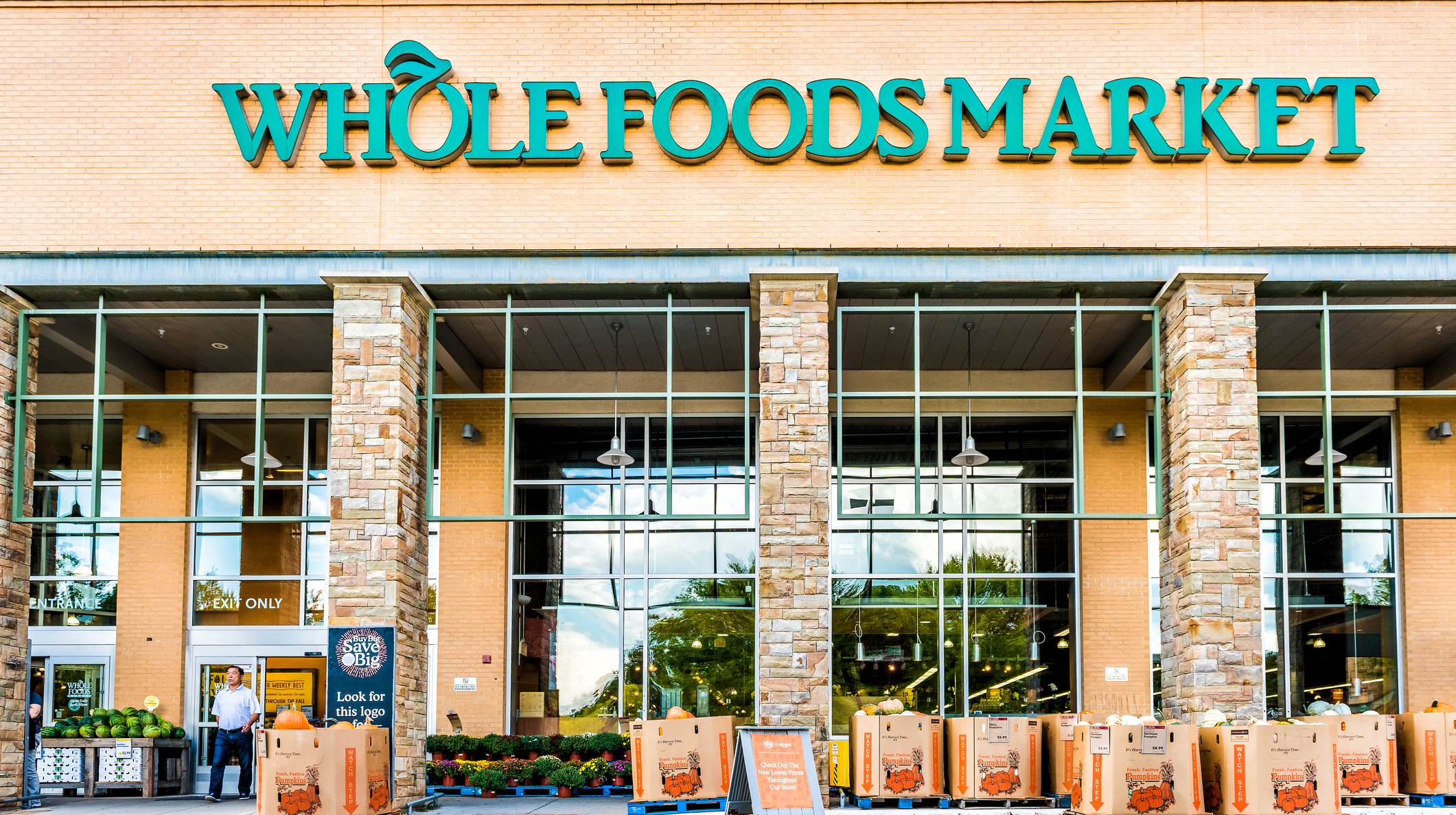Amazon Raises Whole Foods Workers' Minimum Wage To $15, But Not All Employees Are Celebrating
The news sounds positive on face: Global retail overlord Amazon—which bought Whole Foods last year—will raise Amazon and Whole Foods' employees minimum hourly wage to $15. (Fast Company reports it will also offer raises of $1 per hour to employees who earn more than that.) The change would go into effect November 1, Nation's Restaurant News reports. Vermont Senator Bernie Sanders lauded the move, saying Amazon CEO Jeff Bezos did "exactly the right thing." But not all Whole Foods workers are ready to pop champagne over the news.
Some are worried that while the move means a better minimum wage, Amazon-Whole Foods might try to make up those savings elsewhere, either by cutting employees' hours or changing policies regarding their stock options.
Stock options especially have been an ongoing point of contention and were part of the reason some Whole Foods employees attempted to unionize earlier this year. In a letter to fellow employees written in September, those organizers stated: "The clandestine nature of Amazon offering stock options to store leadership without informing [other employees] is beyond problematic... It is insulting and unethical." Indeed, in announcing the $15 minimum wage, Amazon stated that it would phase out its stock option program for Amazon warehouse employees and replace it with a direct-buy system; Gizmodo reports that in September, Whole Foods CEO John Mackey promised his employees a stock equity program and said it was "actively developing a solution" to offer equity opportunities for all vested workers. Confusion reigns, and the jury is out as to whether Whole Foods employees will be cut out of gain-sharing opportunities.
Workers and labor advocates are also concerned about reduced hours and increased automation at Amazon warehouses and in the Whole Foods chain. Marc Perrone, president of the United Food And Commercial Workers International Union, tells Fast Company that while any wage hike is good news, he's waiting to see whether the company will try to make up these costs by cutting back on human labor costs: "I don't want to be a cynic, but I would wait and see over the next six months what this really looks like. There's no guarantee their hours are going to stay the same."
Ultimately, Amazon-Whole Foods employees are in a wait-and-see situation. It's up to company leadership to clarify conflicting and confusing statements about stock options, and to prove that it won't suddenly greenlight a bunch of robots to replace those peskily expensive human workers. Until then, workers can't fully celebrate the minimum-wage increase.
[Note: Gizmodo, like The Takeout, is owned by Univision Communications.]
